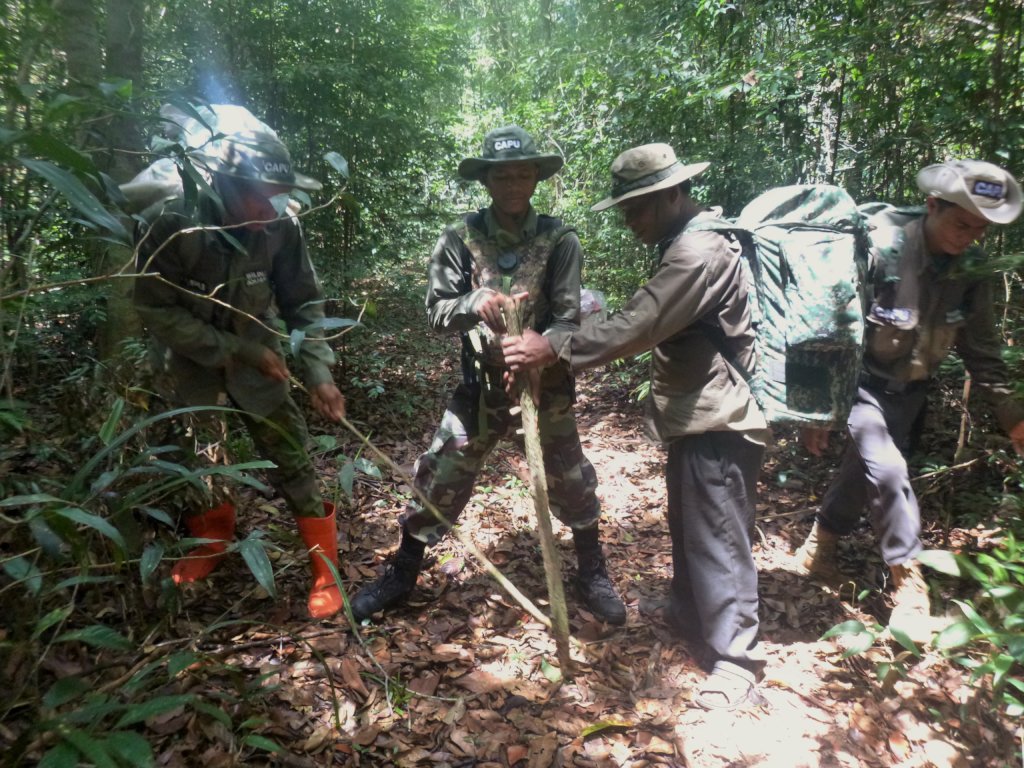By Jessie Knierim | Director of Development and Communications
One of the most significant threats to the important wildlife of the Cardamom Rainforest is poaching using snares by commercial hunters coming from outside the region. Wire snares are easy to make and conceal but have a devasting impact on wildlife as they are non-selective and able to kill or disable a wide variety of species. Though snares are often set for wild pigs, to service the illegal wildlife meat trade in urban restaurants, they kill or maim many non-target species including elephants, Asian wild dogs, and bears. Many snared animals are simply left to die and rot in the forest. Recent camera-trapping has shown that more than half of the elephant calves in the landscape show signs of snare injuries to their trunks or legs.
Members of the Chi Phat and Areng Valley communities have stepped up to end this concern through creating Community Anti-Poaching Units and implementing targeted snare-removal patrols. The community rangers operate in villages where Wildlife Alliance is supporting Community-Based Ecotourism (CBET) as this is where communities see a direct financial benefit, through tourist visitors, in safeguarding their wildlife and biodiversity. As such their motivation to support conservation efforts, and patrol to remove snares, is high. Before these villages became CBET programs, they were the centers of illegal activity, particularly poaching and wildlife trade.
The community rangers are trained on how to patrol efficiently and effectively and how to detect and remove snares. Each unit patrols an area of approximately 10-km radius that they identify as facing high snare threats and are key areas for elephants. CAPU team members will also be trained on basic animal welfare and handling so any live animals found in snares can be safely transferred to the Wildlife Alliance managed Wildlife Release Station on the edge of the Cardamom Rainforest Landscape. The empowerment of these communities has transformed them from poaching hotspots to wildlife guardians.
By Jess Knierim | Development Associate
By Jessie Knierim | Development Associate
Project reports on GlobalGiving are posted directly to globalgiving.org by Project Leaders as they are completed, generally every 3-4 months. To protect the integrity of these documents, GlobalGiving does not alter them; therefore you may find some language or formatting issues.
If you donate to this project or have donated to this project, you can recieve an email when this project posts a report. You can also subscribe for reports without donating.
